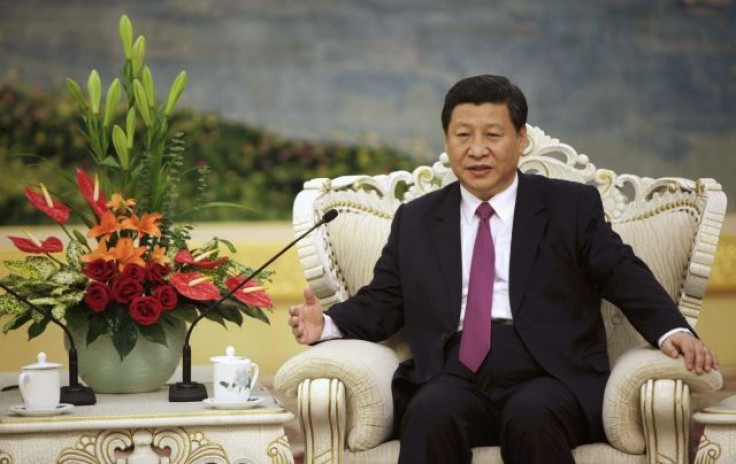Xi Jinping: 6 Things You Need To Know About China’s Next President

Xi Jinping, the new leader of the Communist Party of China who is destined to lead the world’s most populous country for the next decade, is a quintessential “princeling” candidate by virtue of his bloodline.
The son of the revolutionary hero, Xi Zhongxun, who served as a minister under China’s paramount chief Mao Zedong, Xi Jinping, 59, belongs to China’s fifth generation of leadership.
Here is a roundup of facts you need to know about Xi Jinping:
1. Pedigree – Xi’s father fought alongside Mao in the revolution that brought the party to power in 1949 and went on to serve as vice-premier until he fell out of favor with Mao’s administration. He was rehabilitated after Mao’s death in 1976 under reformist leader Deng Xiaoping.
His father’s rise and fall during Mao’s rule defined Xi’s childhood — during which he enjoyed an elitist life in Beijing — and youth — during which he lived in a dug-out cave in the remote northern community of Liangjiahe working with peasants.
2. Upbringing – Xi has used his background and elitist upbringing as well as his acceptance among public to his advantage. He studied chemical engineering at Tsinghua University in Beijing, an elite school where his predecessor Hu Jintao also studied. Xi later gained a degree in Marxist theory from Tsinghua and a doctorate in law.
3. Family – He is married to Peng Liyuan, a renowned singer whose popularity in China matches, if not surpasses, that of her husband’s. Peng was ordered by the party to restrict herself to a low-key life as her husband started climbing the political ladder. They have a daughter Xi Mingze who studies at the Harvard University under an assumed name. Xi reportedly likes Hollywood movies, particularly those centered around World War II.
4. Political Rise – Xi bolstered his influence in the party in the early 1980s as the party leader of a rural county in Hebei province, which surrounds Beijing. He was promoted as governor of the southeastern province of Fujian in 1999 after a string of provincial officials were caught up in corruption allegations.
He oversaw the reformist provinces of Fujian and Zhejiang, before taking the top post in the commercial hub of Shanghai in 2007, which earned him his reputation as an economic reformer.
Xi has a relatively clean reputation, though there were reports in June about the wealth of his extended family, which Bloomberg estimates runs into the hundreds of millions of dollars.
5. Disappearance – Xi was a subject of media speculation in September when he “disappeared” for nearly two-weeks and canceled his scheduled meetings with visiting U.S. Secretary of State Hillary Clinton and other foreign dignitaries at short notice. Though it was reported that Xi suffered a back injury, the disappearance prompted feverish rumors of his troubled succession.
6. Policy – His name is never associated with any bold reforms, nor is he known as an exceptional leader, though he is supposedly open to private industry and economic and administrative reforms. However, little is known about his outlook on strategic foreign policy issues such as the relationship between India and China or the global economy.
In his visit to the U.S. in February, Xi called for a better strategic trust between Washington and Beijing and also endorsed the “one-China policy” which rejects independence for Taiwan and Tibet.
Xi created a stir in China and across the world during an address in Mexico, three years ago, when he came across as a staunch nationalist who strongly defended his country’s policies in the midst of Western criticism directed at China.
"Some foreigners with full bellies and nothing better to do engage in finger-pointing at us,” Xi had said. "First, China does not export revolution; second, it does not export famine and poverty; and third, it does not mess around with you. So what else is there to say?"
According to former U.S. Ambassador to Beijing Jon Huntsman, Xi is a man “who is quite different from Hu Jintao” and “someone who you can connect with.”
© Copyright IBTimes 2024. All rights reserved.












